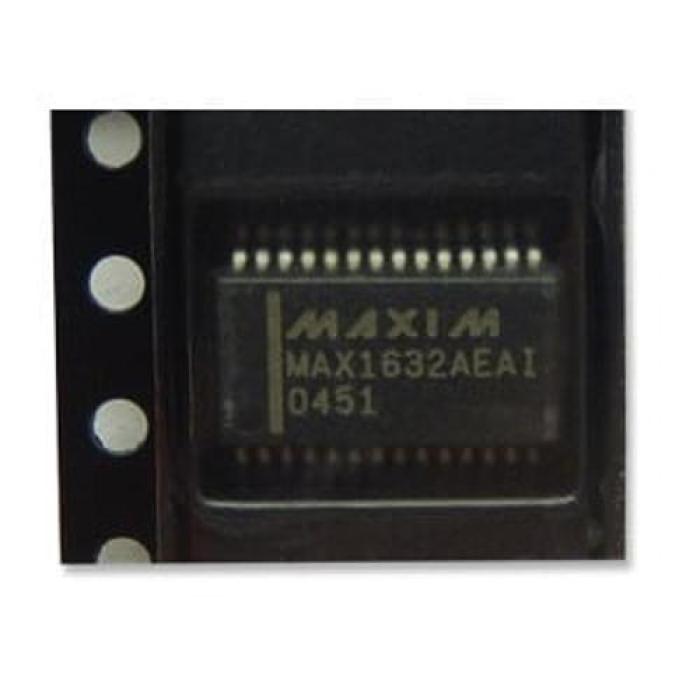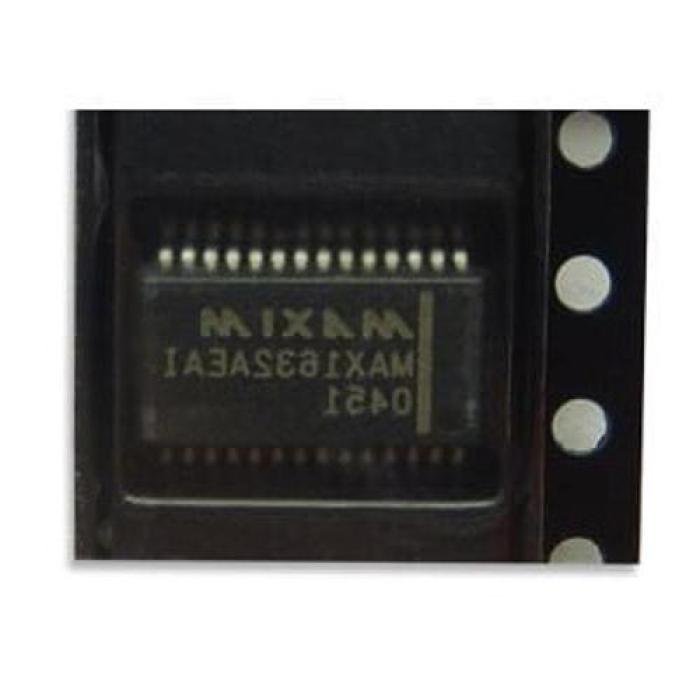The MAX1630A–MAX1635A are buck-topology, stepdown, switch-mode, power-supply controllers that generate logic-supply voltages in battery-powered systems. These high-performance, dual-/triple-output devices include on-board power-up sequencing, power-good signaling with delay, digital soft-start, secondary winding control, low-dropout circuitry, internal frequency-compensation networks, and automatic bootstrapping. Up to 96% efficiency is achieved through synchronous rectification and Maxim’s proprietary Idle Mode™ control scheme. Efficiency is greater than 80% over a 1000:1 load-current range, which extends battery life in systemsuspend or standby mode. Excellent dynamic response corrects output load transients caused by the latest dynamic-clock CPUs within five 300kHz clock cycles. Strong 1A on-board gate drivers ensure fast external n-channel MOSFET switching. These devices feature a logic-controlled and synchronizable, fixed-frequency, pulse-width-modulation (PWM) operating mode. This reduces noise and RF interference in sensitive mobile communications and pen-entry applications. Asserting the SKIP pin enables fixed-frequency mode for lowest noise under all load conditions. The MAX1630A–MAX1635A include two PWM regulators, adjustable from 2.5V to 5.5V with fixed 5.0V and 3.3V modes. All these devices include secondary feedback regulation, and the MAX1630A/MAX1632A/MAX1633A/ MAX1635A each contain 12V/120mA linear regulators. The MAX1631A/MAX1634A include a secondary feedback input (SECFB), plus a control pin (STEER) that selects which PWM (3.3V or 5V) receives the secondary feedback signal. SECFB provides a method for adjusting the secondary winding voltage regulation point with an external resistor-divider, and is intended to aid in creating auxiliary voltages other than fixed 12V. The MAX1630A/MAX1631A/MAX1632A contain internal output overvoltage and undervoltage protection features. The MAX1630A family has improved RF immunity over the MAX1630 family









